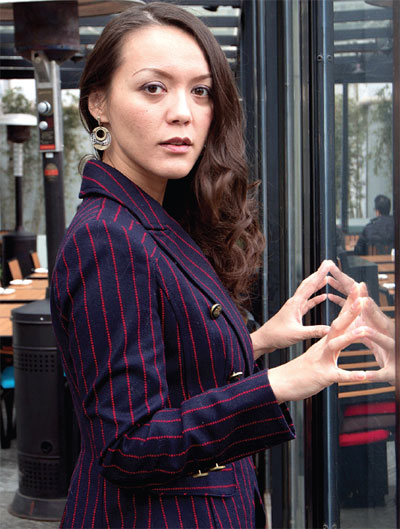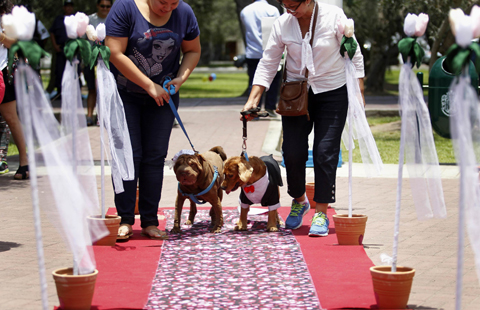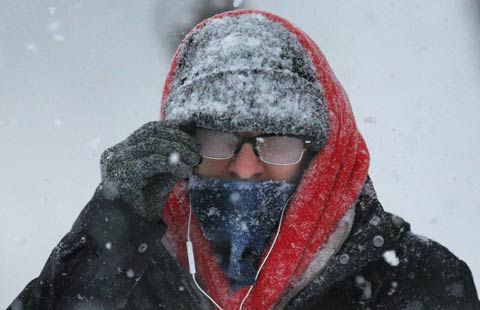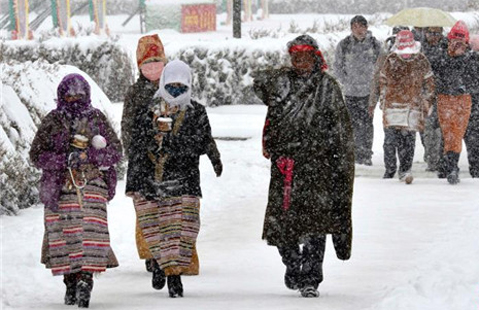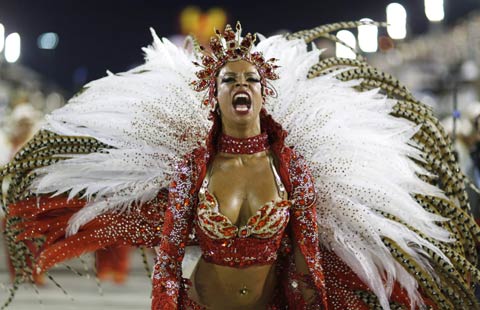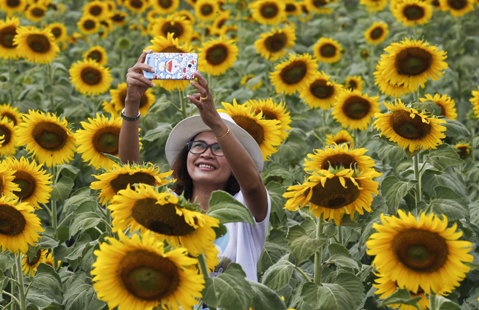The legal eagle flying the flag for equality
Updated: 2015-02-17 07:47
By Cui Jia(China Daily)
|
||||||||
As a lawyer, Nafisa Nihmat is determined to present a fully-rounded picture of a new generation of highly educated young people from the Xinjiang Uygur autonomous region, as Cui Jia reports from Shanghai.
Nafisa Nihmat moved to Shanghai to study law because she wanted to emulate the female lawyer in a book she read when she was in junior high school.
Now, as an associate at a leading law firm in the city, the native of the Xinjiang Uygur autonomous region is determined that everyone, including top officials, should understand the importance of handling Xinjiang-related issues in accordance with the law.
"My friends from Xinjiang say I am a real Xinjiang girl, while those from Shanghai say I have the character of a Shanghainese. My classmates at university in the United States asked me which state I was from because I didn't appear Chinese to them at all," said the smartly dressed 36-year-old, who has a 2-year-old son.
Recalling her time growing up in Tekes, a county in the Ily Kazakh autonomous prefecture, she said: "Little did people know it, but during the 1980s the people in Ily were the trendiest in China. During the winter, they wore leather boots, fitted coats and colorful cashmere scarfs imported from the Soviet Union."
As a child, Nafisa spent hours gazing into the eyes of her relatives, who came from a number of ethnic groups - including Uzbek, Russian, Kazakh and Uygur - and noting the different colors. Like her mother, Nafisa has dark-brown eyes, but her aunt's are green, and her cousin's are blue.
"I was brought up to believe people should respect each other's religions and customs from the start, instead of telling people to feel OK after they have clearly been offended, so I am not Charlie," she said, referring to the murders of 17 people during and after an attack on the Paris offices of the satirical magazine Charlie Hebdo, which she described as "a horrific crime".
Respecting differences
She said that when she was a child, her mother stressed equality, and told her it would be disrespectful to step on the ashes left on the streets when Han people burned ceremonial paper gifts in memory of their ancestors.
"Xinjiang is probably the only place in China where people from so many different ethnic groups live side by side. Unlike those who grow up in less-diverse environments, Xinjiang people know how to accept and respect each other's differences," she said.
She has also become familiar with the special measures, including a tighter inspection regimen, that people from Xinjiang experience whenever an attack occurs in the region, which has long been China's front line in the fight against terrorism. In recent years, the growth of religious extremism has exacerbated the situation, according to officials.
"People should understand that Xinjiang is now hitting terrorist cells hard, and it's natural that we will see more attacks because the cells feel they are cornered and so they decide to carry out violent acts. It's like sweeping the floor - the more you sweep, the more dust you see, " she said.
She said she doesn't resent the special attention, so long as the process is conducted lawfully and sensitively, as was the case recently when she was approached by a police officer after she checked in to a hotel in Hangzhou, the capital of Zhejiang province.
Nafisa had traveled to the city for a meeting with 60 lawyers from around the country, but the officer asked to see her ID and wanted to know the purpose of her visit. "I told him the law requires at least two officers to be present during questioning. He apologized, and later returned with his partner. They very politely asked me some questions, and apologized for the inconvenience they'd caused," she said.
However, she said that not all inspections are as friendly as that one, and aggressive attitudes and harsh questions can trigger unnecessary conflict.
To avoid potential inconvenience, some hotels now refuse to allow people from Xinjiang to check in, even if they have reservations, according to Nafisa. "I've heard so many complaints about it, but not one person has used the law to sue the hotels. Discrimination is contrary to the Law on the Protection of Consumers' Rights and Interests," she said. "If 30 people won 30 cases on this issue around China, I don't think any hotel would dare to refuse anyone entry."
All disputes must be handled in accordance with the law, and the idea that the end justifies the means, lawful or otherwise, must be eradicated, especially in Xinjiang, Nafisa said.
On Feb 1, a regulation banning women from wearing full-face veils and full-body coverings in public was officially introduced in Urumqi, the capital of Xinjiang. Officials say the garments are not traditional and are often associated with extreme religious views.
"Although there has been a lot of debate about it, just enacting the regulation was a step forward because the authorities now have a law to follow when they deal with these sorts of issues," Nafisa said.
She had the opportunity to put her views to Yu Zhengsheng, a member of the Politburo's Standing Committee and the leader of the central government's coordinating group for Xinjiang affairs, during a meeting in December.
At the meeting, attended by 12 local leaders, Yu said a series of terrorist attacks have resulted in a skewed public perception of people from Xinjiang, and that the terrorists are an extremely small group and do not represent any religion or region, certainly not the vast majority of people from the autonomous region.
Contact the writer at cuijia@chinadaily.com.cn
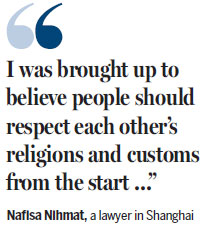
|
Nafisa Nihmat is an associate at a leading law firm in Shanghai. Gao Erqiang / China Daily |
(China Daily 02/17/2015 page6)
Most Viewed
Editor's Picks

|

|

|

|

|

|
Today's Top News
China to import more iron ore from Vale
Mexico makes moves to attract more Chinese tourists
Brazil, Peru and China to specify railway details
Growing up recluse in a dazzling world of Manhattan
Apple studies self-driving car: auto industry source
Second-longest railway built overseas by China rolls out
Graft buster publishes corruption cases in environmental sector
2 deadly shootings within hours in Copenhagen
US Weekly

|

|
